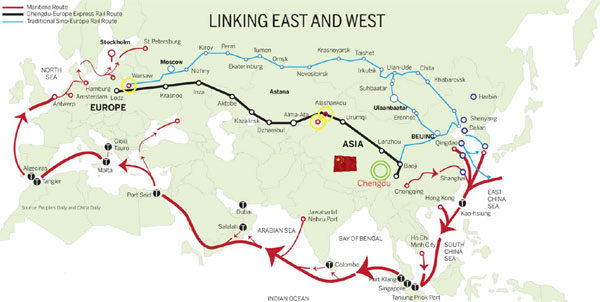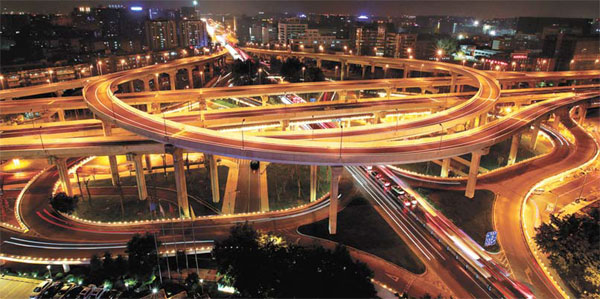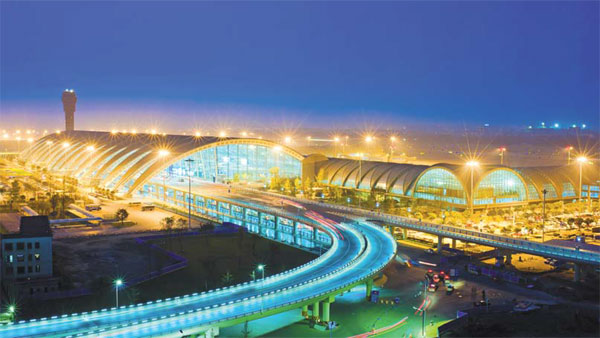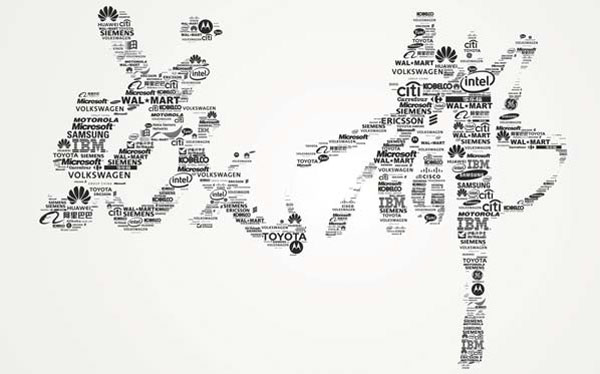Chengdu GDP hits 1 trillion yuan
By Zhang Zhao (China Daily) Updated: 2015-01-21 16:40Range of international moves make it a rising city
At a recent economic meeting in Chengdu, officials announced that the western city's GDP surpassed the 1 trillion yuan ($161.1 billion) benchmark for the first time last year.
Electronics and IT alone contributed 280 billion yuan, and the auto industry generated 130 billion yuan as the overall economy grew 8.8 percent.
 |
|
The two cargo train routes linked to Europe and Central Asia make Chengdu an important hub for land transportation. |
Located at the intersection of the Silk Road Economic Belt and the Yangtze River Economic Belt, and home to operations by 262 Fortune 500 companies and 12 foreign consulates, the city is "running on a fast track" as a driving force in the nation's globalization, local officials said.
It's airport now serves 78 international passenger and cargo routes and handles 37.5 million travelers a year.
Two-thirds of all iPads
Chengdu is the production center for 20 percent of the world's computers and two-thirds of all iPads. Half of the world's laptop computer chips are also encapsulated and tested in the city.
On Dec 3, 2014, Intel Corp announced that it would invest $1.6 billion over the next 15 years to expand its semiconductor plant in Chengdu and introduce its latest Advanced Test Technology.
Another global semiconductor giant, Texas Instruments, announced at the opening ceremony on Nov 6 last year for its seventh assembly and testing facility that it would expand its manufacturing capacity in Chengdu with a 300 mm wafer bumping facility.
More than 40 Fortune 500 companies in the IT sector have opened branches in Chengdu along with 13 of the world's top 20 software makers.
The emerging big data business is also an attraction for world giants.
With the software a major industry, the city was listed as one of the first China Software City in 2012 when the sector generated production valued at more than 100 billion yuan.
Tianfu Software Park in Chengdu Hi-tech Zone is one of the largest software clusters in China.
Auto making is another pillar industry in Chengdu, which now has an annual car production capacity of more than 1 million units. Vehicles made in the city include passenger cars, trucks, SUVs and special purpose vehicles, said local officials.
Investors include Dongfeng Peugeot Citroen, FAW-Volkswagen, FAW-Toyota and Volvo, as well as many car component suppliers.
Local officials said that they have made great effort to commercialize technologies, introduce professionals and foster an innovation-friendly environment.
For 11 consecutive years, Chengdu has been one of the "Most Recommendable Mainland Cities" by Taiwan Electrical and Electronic Manufacturers' Association. It ranked third for Chinese Cities Global Image by Gallup China Consulting Organization.
It also topped the list of the next decade's fastest-growing cities by Forbes.
Andy Serwer, managing editor of Fortune magazine, said that it was "not an accident that we picked this city in West China" as the host of the 2013 Fortune Global Forum.
"The theme of the forum is the 'new future of China' and Chengdu represents so many trends," he said.
Advanced logistics
Opened in 2013, the Chengdu-Europe express train takes cargo from Chengdu to Europe in 12 days, making it the rail passageway linking China and Europe in the shortest time. And when the returning train service set to open in March, it will bring back European specialties such as wine to local markets.
The express train, becoming one of the most convenient channels linking China and Europe, is just one route managed by the West China Railway Logistics Center in Chengdu. Another of its major route is the Central Asia Freight Train that travels to five Central Asian nations.
The two lines serve a combined population of some 3 billion people along the Silk Road Economic Belt.
The city's transportation authority said that its future focus will be a combined highway-railway transport model. It will join with many cities and regions including Shanghai, Shenzhen, Horgos in Xinjiang, the Qinzhou bonded area in Guangxi and Lodz in Poland.
Walter Dias, managing director of United Airlines' Greater China and South Korea, said that the city is transforming from an inland city far from the sea to an internationalized metropolis.
The company launched 14-hour nonstop flights between Chengdu and San Francisco in June 2014. The 80-percent occupancy rate in the business class was "far beyond" their expectation.
Dias said that he found cooperation with Chengdu was "the smoothest" although he had worked in many cities during his 27-year career.
Chengdu now has 78 internationals air routes, including 23 direct passenger flights. It takes four hours to Southeast Asia in the air, and six to 10 hours to the Middle East and Europe.
In addition, the city is the fourth in China enjoying the 72-hour visa-free policy that allows passengers from 51 countries to spend three days in the city if they have valid third-country visas and onward flight tickets.
Thanks to the joint effort in both land and air transportation, the city is no longer restricted by inland infrastructure and services, and is emerging as a competitive international logistics hub, said local officials.
Tianfu New area
The Tianfu New Area, China's 11th national-level development area approved by the State Council in October 2014, is the latest charm added to the city. It is expected to become a major modern industrial base and help increase Chengdu's competitiveness.
Local officials said that the area will be a hub open to the outside world despite its inland location, and as an advanced regional service industry center and national innovation hub, it will focus on high technology and advanced manufacturing sectors.
They explained that the area will provide opportunities for economic, technical and cultural exchanges between China and Eurasian countries and regions.
High-tech industries in the area - including electronics, new energy equipment manufacturing, new materials and bio-technologies - will generate annual GDP of more than 1 trillion yuan in the years to come, according to local officials.
Advanced manufacturing will focus on auto making, aerospace, engineering machinery and environmental protection equipment.
The area will also be a hub of finance, trade, conferences and exhibitions, R&D, creative industries, tourism and fashion, officials said.
It has attracted more than 100 large projects with total investment of 106.6 billion yuan from investors including Geely-Volvo, China Railway Group, China State Construction and China North Industries Group Corp.
As one of the first planned zones in the new area, the Xinchuan Innovation Technology Park covering 10.3 square kilometers with a population of 120,000 people, has attracted total more than 20 billion yuan in investment while another more than 30 investors have shown interest.
Local officials said that the modern industries and leisure business in the new area will help create an "industrialized Chengdu".
zhangzhao@chinadaily.com.cn
 |
|
With improved facilities and services, Chengdu is now a major investment destination. Photos provided to China Daily |
 |
|
Serving 78 international passenger and cargo routes and handling 37.5 million travelers a year, Chengdu Shuangliu International Airport is the aviation hub in western China. |
 |
|
The characters for "Chengdu" made up of the logos of multinational companies. The city is home to operations by 262 Fortune 500 corporations. |
- Shanghai govt releases report on stampede tragedy
- China's regulator blames 'unhealthy images' for re-edited TV show
- Fake condoms, Viagra, seized and online network shut down
- Macao casinos targeted in the fight against graft
- China's population grows to 1.37 billion
- 14 arrested for ivory trading in N China
- Xi checks up on quake victims
- Anti-graft watchdog vows to net more 'flies'
- China clamps on 'jihadi migration' at SW border
- Party organs urged to support independent judicial system







